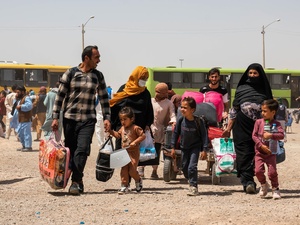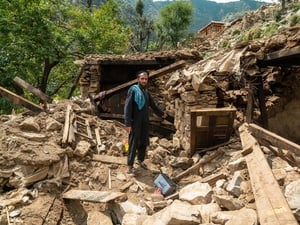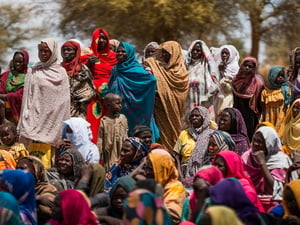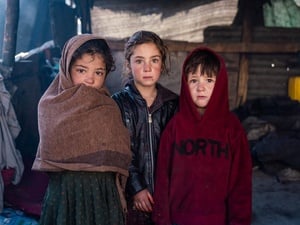Afghanistan: flows in both directions
Afghanistan: flows in both directions
Spurred by the recent changes in Afghanistan, thousands of Afghans are abandoning refuge in neighbouring countries and spontaneously returning to their homeland. In January alone, over 105,000 Afghans repatriated home from Pakistan and Iran. More than 50,650 Afghans returned to Afghanistan through the Torkham border post in north-west Pakistan between 16-31 January, while another 34,650 went back through the Chaman border crossing in southern Pakistan from 1-21 January. And from Iran, some 20,000 Afghans returned through the Dogharoun-Islam Qala border post in January.
Since November, UNHCR border monitors have reported the return of more than 170,000 Afghans from Iran and Pakistan. During the same period, over 67,000 internally displaced persons went back to their places of origin. Of these, some 48,000 returned to the capital Kabul. Some 40 percent of the returnees are families with their personal belongings, who are deemed to have come home for good. However, two-thirds of the returnees are individuals who have probably come to check out the situation before making the decision to bring their families back.
In a survey - only of those returning from Pakistan - UNHCR found that the majority of the returnees were Tajiks. [Among them were former government officials in pursuit of employment opportunities in the new administration.] Some 18 percent were Pashtuns, 8% Hazaras and 6% Turkmen. Some 61% were returning to Kabul and the central region, 21% to the eastern region and 18% to the northern region. The overwhelming majority of the Afghans interviewed fled the country because of conflict (48-92%) and the recent US-led air strikes (4-23%), while between 15-30% said they left for economic reasons.
While many Afghans go back or ponder doing so, some continue to leave Afghanistan, citing lack of aid and harassment by rival ethnic groups. Most of those still leaving Afghanistan use the Chaman border crossing from Afghanistan's Kandahar region into Pakistan's Balochistan province. The people, who are predominantly ethnic Pashtuns, say they are fleeing harassment by ethnic Uzbeks in northern Afghanistan. Some are coming from makeshift encampments at Spin Boldak on the Afghan side of the border. UNHCR on Monday will re-open its Spin Boldak office, initially with local staff, to see how the displaced people can be supplied with aid there rather than having to flee to Pakistan to get help.









